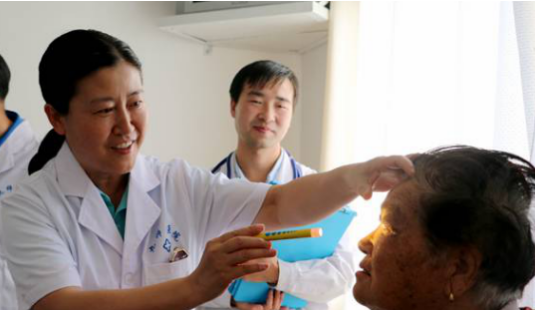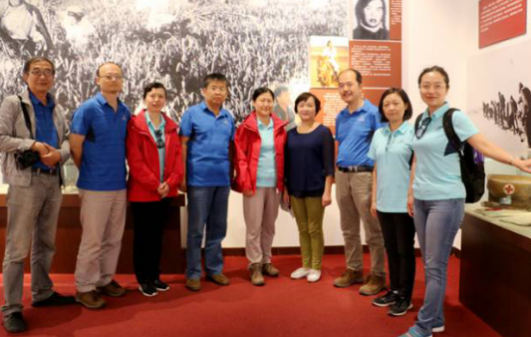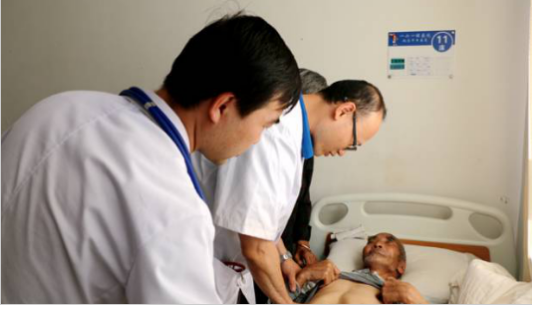On September 10, under the leadership of Deputy Dean Hu Yongquan of the Ninth Agricultural Division Hospital of Xinjiang Production and Construction Corps, 8 experts of the national medical team from the First Affiliated Hospital of Xi'an Jiaotong University went to 161 Corps for a visit and offered gratuitous treatment.
After more than two hours of driving, they finally arrived at Sun Longzhen Memorial Hall and Little Poplar Post, where they accepted the patriotism education. Sun Longzhen was a historical heroine of 161 Corps. On the morning of June 10, 1969, Chinese herdsmen went to shepherd in the Sino-Soviet dispute area, and were kidnapped by the Soviet army. At that time, the pregnant Sun Longzhen and other soldiers took shovels to save them, but the Soviet army shot them with a machine gun; unfortunately, Sun Longzhen was shot at the abdomen and died, and her baby also did not survive. Now, the heroine is sleeping at the frontier of the motherland, and her spirit has been inheriting in Xinjiang Production and Construction Corps.
At the Little Poplar Post, members heard the creation story of the song “Little Poplar”. In 1982, when Cheng Fusheng, a Xibo soldier at Sentinel Squad of Tasiti Frontier Defense Company, went home to visit his relatives, his mother learned that the post was desolate, so she prepared 10 saplings of little poplar and enjoined her son to plant them around the post, and hence they could accompany his son to stand sentinel and do guard duty. The frontier soldiers insisted on watering them, but due to the dry and hard environment, only one sapling survived. In 1983, the composer Liang Shangquan went to the post for collecting source materials, and learned this touching story. Later, he created the well-knownsong “Little Poplar”, which was then performed by Yan Weiwen around China. On the day, all members of the medical team, led by the team leader Liu Hao, sang the familiar and emotional melody at the foot of the little poplar.
After visiting the border post, they went to the Hospital of 161 Corps to carry out teaching rounds, which mainly focused on the patients with advanced tumor and sequel of cerebral infarction. Team members provided treatment solutions for those patients after understanding the medical history, making the physical examination, and assessing the auxiliary examination. They also exchanged opinions with local physicians on palliative treatment of advanced tumor. Although the infrastructure has been significantly improved, grass-roots physicians have to face more problems, such as financial difficulties of patients and trust of patients; so it is much harder to carry out medical work than in big cities. It is a long way to go to improve the health service system for frontier soldiers and civilians.
After a day of visiting and gratuitous treatment in the Hospital of 161 Corps, all of the team members were deeply impressed by the “Spirit of Sun Longzhen” and “Little Poplar”, and the difficulties in the grass-roots hospital. Peace was not easily achieved, so we hope that our motherland could be more prosperous, the frontier could be more stable, and frontier soldiers and civilians could be healthier and happier.



